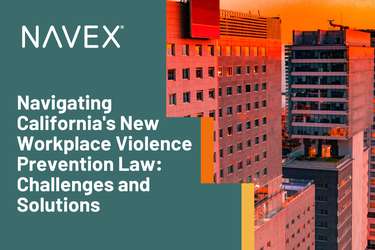Although we know that it takes an extreme amount of courage to stand up to a system, when a person speaks out against an injustice we often immediately become distrustful of this person.
Snitch. Rat. Tattletale. Trouble-maker. These are words that are most commonly used to describe a whistleblower. You may even know someone who has described a person using one of these terms or maybe you’ve described a person like this at some point in your life. These are not words we use to describe someone we admire. Someone who’s trustworthy or someone we really like and trust. But let’s face reality. We really don’t like whistleblowers. Although we know that it takes an extreme amount of courage to stand up to a system, when a person speaks out against an injustice we often immediately become distrustful of this person. We begin to think of every way possible to discredit this person who is attempting to shed light onto a situation that could protect us all from harm. But why? Why are we so quick to label these people as snitches and tattletales?
Forty percent of all frauds are discovered by a whistleblower who is often an employee of the organization they are whistleblowing about.
I spend my time either teaching or researching about fraud and I know firsthand that whistleblowers are a key source in fraud discovery. Whistleblowers, like it or not, are part of the puzzle that often brings fraud to the surface. Forty percent of all frauds are discovered by a whistleblower who is often an employee of the organization they are whistleblowing about. But when an employee decides to take this step, they are taking a huge risk. Instead of being praised and rewarded, they are often ostracized and ridiculed for speaking up. If we want to fight fraud, this treatment must stop.
New Study: ROI of Whistleblower Hotline Reporting
Through the Eyes of the Whistleblower
I’ve spent the last eight years interviewing whistleblowers and, though they all believe that they did the right thing and if they had the opportunity again they would, they all cite being retaliated against by the organizations they blew the whistle on.
Many of us reading this are old enough to remember the 1986 Space Shuttle Challenger lift off. I remember it vividly. I was a 6th grader in Mrs. Crabtree’s class at Pearsontown Elementary School and I remember Mrs. Crabtree rolling in the TV cart so that the entire class could watch the lift off. We were so excited because Christa McAuliffe was going to be the first teacher in space. 5-4-3-2-1…we have lift-off…and we watched with excitement as the Challenger rose into the sky until the unthinkable happened. The Challenger exploded within 73 seconds of lift-off. I remember Mrs. Crabtree rushing from her desk to turn the TV off. We didn’t know what to think. My 6th grade mind could not comprehend what I just saw. I remember that day like it was yesterday.
Years later, I learned that the Space Shuttle Challenger could have been prevented if only the whistleblower was heard. Whistleblower Roger Boisjoly tried to warn NASA the night before the launch that the O rings would fail if the shuttle was launched in cold weather. No one listened. After Boisjoly testified to the Rogers Commission about his research findings, Boisjoly was shunned by his colleagues and faced extreme retaliation. He later resigned from his company due to the pressure of being labeled a whistleblower.
Boisjoly was trying to save seven innocent lives. Should he be classified as a snitch?
Another person I met while conducting these interviews was whistleblower Mary Willingham. If you were to Google Mary’s name, you will see that she is the person that exposed the 20-year UNC academic fraud case. Mary was a learning specialist and noticed that students, particularly student athletes, with low reading abilities were turning in research papers that appeared well beyond their reading levels. After asking a few questions, she discovered a system that was designed to keep student athletes eligible to play sports. Mary was outraged and proceeded to tell her supervisor. When speaking to her supervisor didn’t work, she attempted to speak to internal university administrators but again, no one did anything about it. She decided to blog about her observations, and the blog went viral in 24 hours. She then teamed up with reporter Dan Kane and together they exposed the story. Mary believed that she was doing the right thing by speaking up for students who otherwise felt voiceless.
Mary did not do anything wrong. She didn’t create nor participate in the fraud scandal and yet, she was isolated, demoted and received numerous death threats over… collegiate sports.
Something is wrong here. The people that are trying to warn us are suddenly placed under more scrutiny than the people committing the fraudulent act. We should remember: behind every bad fraudster there is a good whistleblower.…and quite often those good whistleblowers experience extreme stress and hardship. This needs to change if we hope to drive the type of corporate protection whistleblower programs provide to our organizations.
Read More: Groundbreaking Research on Whistleblower Hotline Usage & Business Performance







